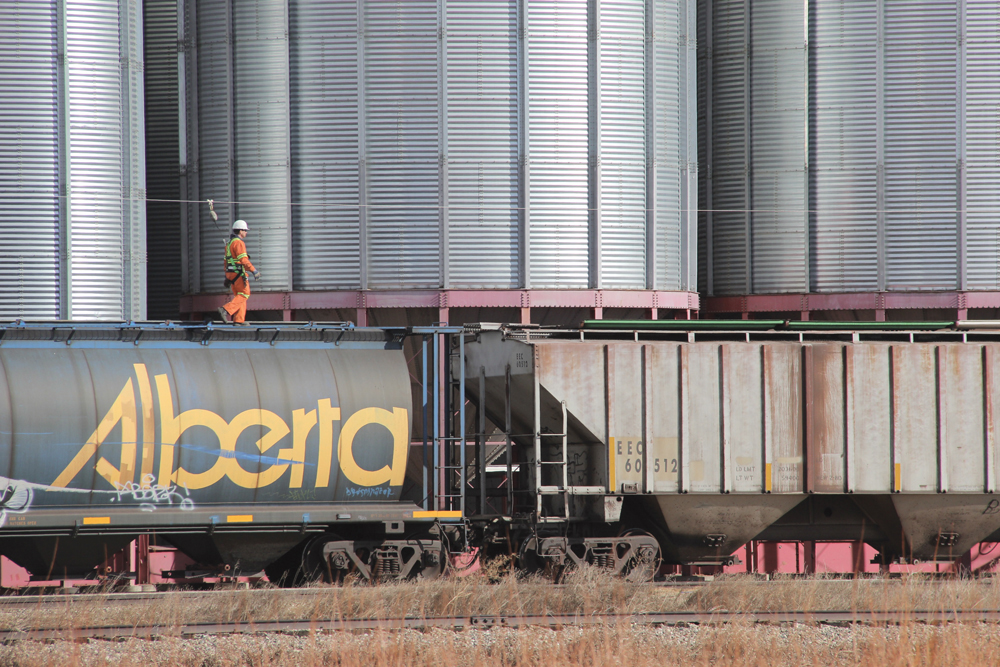The Alberta Wheat Commission is calling on Ottawa to make reciprocal penalties part of any changes to the Canada Transportation Act.
In a submission to Transport Minister Marc Garneau, the commission urges the government to implement a model that would provide shippers the ability to negotiate penalties and contract terms equal to those that are being charged by the railways today.
“Now is the time when our government can provide long-term solutions to our grain transportation system, which will ultimately advance Canada’s economic growth,” chair Kevin Auch said in a media release. “The current imbalance of market power allows railways to dictate operational terms instead of operating in a competitive commercial arrangement.”
Read Also

3D imaging takes guesswork out of wheat research
A Winnipeg-based lab is refining a tool that can create 3D renderings of wheat plants and give precise structural measurements for faster crop breeding.
The wheat commission has three major recommendations for improving the transportation system.
It wants service level agreements (SLAs) that include mandatory reciprocal penalties for failure to perform to binding contract terms. The ability to achieve agreements will allow shipping companies to negotiate contracts that include penalties equal to those being charged by railways today. SLAs will ensure costs due to poor railway performance are not downloaded to farmers by shippers, it said.
The commission also wants the federal government to keep the maximum revenue entitlement (MRE) to protect producers against excessive rate increases. Freight costs are transferred to the producer by shippers and retaining the MRE will ensure these costs do not prevent producers from being competitive in world markets, it said.
The commission also wants Ottawa to make interswitching measures from Bill C-30 permanent and extend them by increasing interchange capacities or extending limits to 250 kilometres.
“AWC believes these key recommendations will enhance Canada’s grain transportation system and create an environment that enables a competitive atmosphere to ensure Canada’s farmers are able to move their grain in a predictable and efficient manner,” said Auch.















